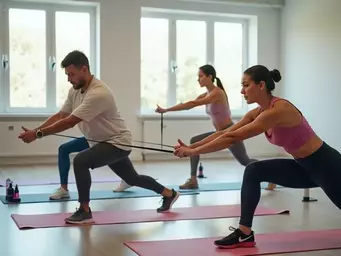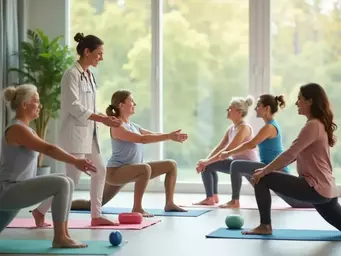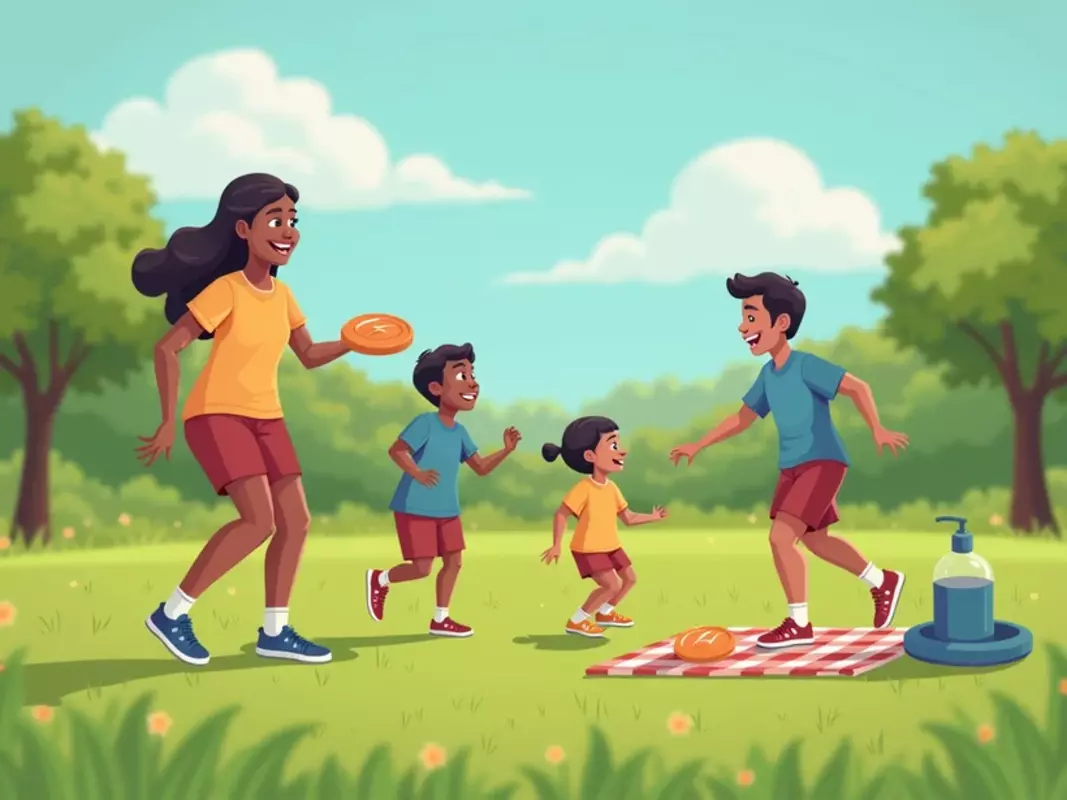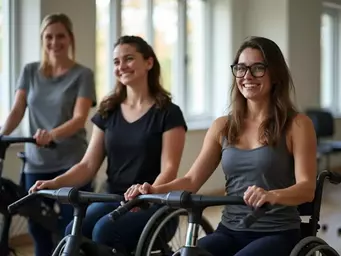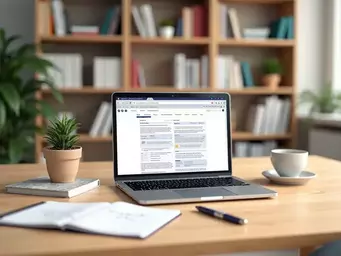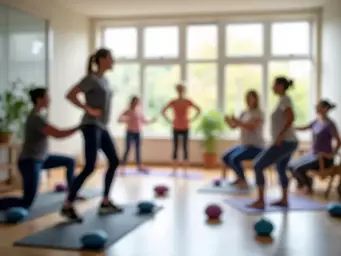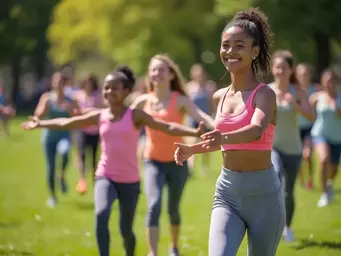Movement Programs for Intellectual Disabilities
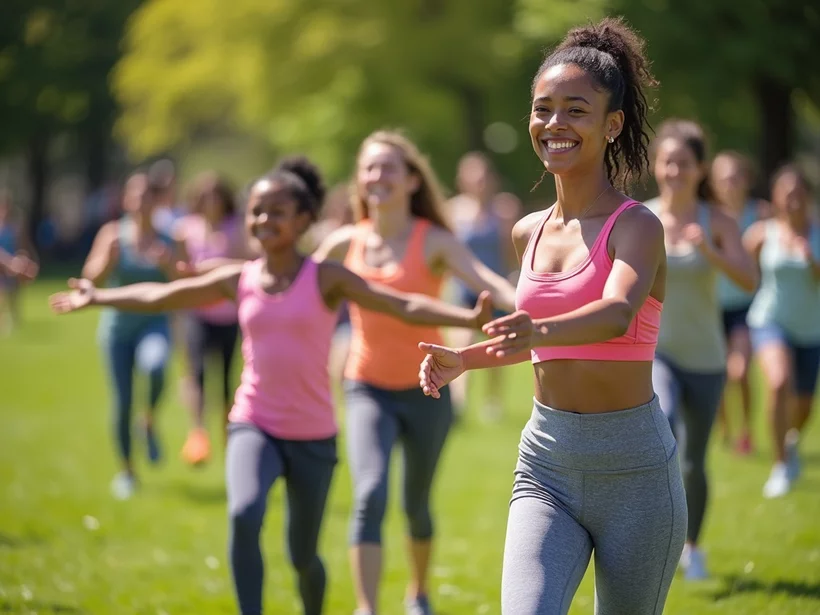
Did you know that tailored movement programs can dramatically enhance the quality of life for individuals with intellectual disabilities? These programs are not merely physical activities; they are a gateway to greater independence, improved health, and stronger community connections. As families explore these opportunities, it’s essential to understand their multifaceted benefits.
What You Will Learn
- The importance of personalized movement programs that cater to individual needs, promoting engagement and achievement.
- Key benefits of adapted physical activity, including improved physical health, enhanced mental well-being, and stronger social connections.
- How effective movement programs can boost confidence, develop life skills, and provide a positive outlet for energy.
- The role of organizations like Special Olympics and Best Buddies in fostering inclusion and providing structured programs for individuals with IDs.
- Key components of successful movement programs, including individual assessments, goal setting, and family involvement.
- Lasting impacts of regular physical activity on motor skills, cognitive function, and social inclusion.
- Ways to become actively involved in local initiatives that promote movement and inclusion for individuals with intellectual disabilities.
Lasting Benefits of Regular Physical Activity for Individuals with Intellectual Disabilities
Engaging in movement programs has numerous positive outcomes, enhancing various aspects of life for individuals with intellectual disabilities. Below are some key benefits illustrated for clarity.
Enhanced Motor Skills
Regular physical activity improves coordination, balance, and strength through targeted exercises.
Cognitive Function Development
Activities stimulate brain function, leading to better focus and problem-solving skills.
Social Skills Improvement
Engaging with peers fosters friendships and teamwork, enhancing social connections.
Boosted Self-Esteem
Achieving personal goals in movement significantly elevates self-confidence.
Understanding Successful Movement Programs for Intellectual Disabilities
At Health Moves, we recognize that successful movement programs play a critical role in enhancing the lives of individuals with intellectual disabilities (ID). These programs are not just about physical activity; they are key to fostering independence, improving overall health, and creating a sense of community. As an Exercise Physiologist, I've witnessed firsthand the transformative power of tailored movement programs, and I’m excited to share insights that can benefit participants and their families. For more details on how exercise physiology can help, you can read our article about Exercise Physiologists in NDIS Explained.
One of the most crucial aspects of these movement programs is their ability to adapt to the diverse needs of each individual. By considering factors such as age, ability level, and personal interests, we can create programs that resonate with participants. This personalized approach not only encourages engagement but also helps individuals achieve their NDIS goals through effective physical activity.
The Significance of Adapted Physical Activity for Individuals with ID
Adapted physical activity is essential for promoting overall well-being among individuals with ID. Engaging in regular movement fosters *physical health*, enhances self-esteem, and nurtures social skills. Many families often ask, “How can movement activities truly make a difference?” The answer lies in the multifaceted benefits that tailored programs provide.
When individuals participate in adapted physical activities, they often experience:
- Improved Physical Health: Regular movement can lead to better cardiovascular fitness, strength, and flexibility.
- Enhanced Mental Health: Physical activity is linked to reduced anxiety and depression, which is critical for overall well-being.
- Social Connections: Engaging in group activities fosters friendships and community ties, making participants feel included.
How Movement Programs Improve Overall Well-Being
Movement programs are designed to target specific challenges faced by individuals with ID, helping them to thrive in various aspects of life. For instance, these programs can:
- Boost confidence and self-image by helping participants achieve physical milestones.
- Encourage the development of essential life skills, such as teamwork and communication.
- Provide a positive outlet for energy, reducing behavioral issues and promoting calmness.
As someone who works closely with families navigating the NDIS, I often emphasize the importance of finding activities that resonate personally with each participant. When they enjoy what they're doing, it becomes less of a chore and more of a joy!
Evidence-Based Benefits Supported by WHO Guidelines
The World Health Organization (WHO) has recognized the significance of physical activity for all, including those with disabilities. Their guidelines advocate for inclusive practices that enhance participation. A few key findings include:
- Regular physical activity can decrease the risk of chronic diseases, which is particularly important for individuals with ID who may have additional health concerns.
- Evidence shows that participation in physical activities can improve cognitive abilities, leading to better learning outcomes.
- Group physical activities contribute to social integration, helping to break down barriers between individuals with ID and their communities.
By integrating these evidence-based practices into our programs at Health Moves, we ensure that our participants not only meet their physical goals but also thrive socially and emotionally. For a deeper dive into how NDIS supports exercise physiology, check out our article on NDIS and Exercise Physiology Insights.
Defining Movement Programs Tailored for Diverse Needs
It’s essential to understand what constitutes an effective movement program tailored to meet diverse needs. At Health Moves, we focus on creating programs that are adaptable and inclusive, ensuring that every participant feels valued and empowered.
What Constitutes Adapted Physical Education?
Adapted Physical Education (APE) refers to physical education that has been modified to accommodate the unique needs of individuals with disabilities. This includes:
- Customized activities that allow for varying levels of ability.
- Use of specialized equipment to ensure safety and accessibility.
- Individualized assessments to monitor progress and adjust goals.
The goal of APE is not just participation, but meaningful engagement that promotes both enjoyment and achievement.
Key Components of Effective Movement Programs
To create effective movement programs, several key components should be considered:
- Individual Assessment: Understanding the unique abilities and interests of each participant is crucial.
- Goal Setting: Establishing clear, achievable goals to keep participants motivated.
- Monitoring Progress: Regular evaluations help to ensure that the program remains effective and engaging.
- Family Involvement: Encouraging family participation can enhance the experience and create a support network.
By focusing on these components, we at Health Moves strive to empower individuals to reach their full potential while enjoying the process of movement!
Highlighting Notable Organizations and Initiatives
Several organizations and initiatives are making significant strides in the realm of adapted physical activity for individuals with ID. These entities not only provide structured programs but also promote awareness and inclusion. Here are a few that stand out:
Special Olympics and Unified Sports
Special Olympics is a global movement that offers year-round sports training and competitions for individuals with intellectual disabilities. They also promote Unified Sports, which brings together athletes with and without ID to compete on the same team, fostering inclusion and camaraderie.
Best Buddies: Promoting Inclusion and Friendship
Best Buddies is another extraordinary initiative that focuses on creating one-to-one friendships, integrated employment, and leadership development for people with ID. Their programs help participants build social networks and develop important life skills.
National Down Syndrome Society and Advocacy Efforts
The National Down Syndrome Society works tirelessly to advocate for the rights and inclusion of individuals with Down syndrome. They provide resources, support, and education to both families and professionals, furthering the mission of inclusivity.
Incorporating insights and practices from these organizations can enhance the programs we offer at Health Moves, ensuring we remain at the forefront of supporting individuals with disabilities in their movement journeys.
Quick Summary
Here's a brief recap of the key points discussed so far:
- Successful movement programs enhance the lives of individuals with intellectual disabilities by promoting physical health, emotional well-being, and social connections.
- Adapted physical activity is crucial for improving self-esteem, developing life skills, and fostering community ties.
- Effective movement programs are tailored to individual needs, involving personalized assessments, goal setting, and family engagement.
Frequently Asked Questions (FAQs)
- What are the main benefits of tailored movement programs for individuals with intellectual disabilities?
- These programs offer numerous benefits, including enhanced motor skills, improved cognitive function, better social skills, and boosted self-esteem. They also contribute to overall physical and mental health.
- How do movement programs improve social skills and foster inclusion?
- By engaging in group activities, participants have opportunities to interact with peers, foster friendships, and learn teamwork. Organizations like Special Olympics and Best Buddies specifically aim to promote inclusion and camaraderie.
- What role does Adapted Physical Education (APE) play in these programs?
- APE modifies physical education to meet the unique needs of individuals with disabilities through customized activities, specialized equipment, and individualized assessments, ensuring meaningful engagement and achievement.
- What are the key components of an effective movement program?
- Effective programs include individual assessments to understand unique abilities, clear goal setting for motivation, regular monitoring of progress, and active family involvement to create a strong support network.
- How can families get involved in local initiatives for movement programs?
- Families can join local fitness classes, participate in relevant events, volunteer their time, and advocate for more inclusive programs. Connecting with local organizations and support groups is also highly beneficial.
Summarizing the Impact of Movement Programs on Intellectual Disabilities
As we reflect on the importance of tailored movement programs, it becomes clear that these initiatives significantly enhance the lives of individuals with intellectual disabilities. The impact of regular physical activity goes beyond just physical fitness; it nurtures emotional well-being and cognitive development. By engaging in these programs, participants can experience improvements in various aspects of their lives, creating a more fulfilling and active lifestyle.
Moreover, organizations like Health Moves are dedicated to making these programs accessible, ensuring that families and participants feel supported in their journeys. With a focus on personalized movement programs, we aim to foster an environment where everyone can thrive. Let’s explore some of the lasting benefits that come from regular physical activity.
The Lasting Benefits of Regular Physical Activity
Engaging in regular movement programs can lead to a multitude of positive outcomes for individuals with intellectual disabilities. Here are some key benefits:
- Enhanced Motor Skills: Improved coordination, balance, and strength through targeted exercises.
- Cognitive Function Development: Activities that stimulate brain function, leading to better focus and problem-solving skills.
- Social Skills Improvement: Opportunities to interact with peers, fostering friendships and teamwork.
- Boosted Self-Esteem: Achieving personal goals in movement can significantly elevate self-confidence.
By integrating these elements into movement programs, we empower individuals to pursue their passions and enjoy the benefits of an active lifestyle. These enhancements not only contribute to their physical health but also create a positive ripple effect in their social interactions and mental well-being.
Enhancing Motor Skills and Cognitive Function
Motor skills and cognitive function are critical components of everyday life. When individuals participate in movement programs, they can develop essential skills that enhance their independence. For example, activities like throwing a ball can improve hand-eye coordination, while group exercises promote cognitive skills through strategic play.
At Health Moves, we believe in the transformative power of tailored programs that address these needs. By engaging participants in enjoyable activities, we can help them achieve better motor control and cognitive clarity, paving the way for a brighter future.
Fostering Social Inclusion and Self-Determination
Social inclusion is crucial for individuals with intellectual disabilities, and movement programs play a vital role in fostering connections. When participants engage in group activities, they create opportunities for friendships, teamwork, and a sense of belonging. These social interactions not only enhance their lives but also promote a sense of self-determination.
By encouraging individuals to make choices about their activities, we help them gain confidence in their abilities. This empowerment is essential for their overall development and can lead to increased participation in community activities, further enhancing their independence. To learn more about setting achievable goals, refer to our guide on NDIS Goals Through Movement Programs.
Encouraging Engagement and Participation in Movement Programs
Now that we understand the significant benefits of movement programs, it’s time to encourage families and individuals to get involved! The journey to better health and inclusion starts with taking the first step. Let's explore how you can become an active participant in local initiatives.
Invitation to Join and Implement Effective Programs
Getting involved in movement programs can be a rewarding experience for both individuals and their families. Here are some ways to engage:
- Join Local Fitness Classes: Search for classes that cater to individuals with intellectual disabilities in your community.
- Participate in Events: Look for local events or workshops that promote physical activity for all abilities.
- Volunteer: Consider volunteering your time to help organize or support movement initiatives.
- Advocate for Programs: Work with local organizations to promote awareness and accessibility of exercise programs.
By taking these steps, you can help create a more inclusive environment where everyone can benefit from movement programs. At Health Moves, we strive to make these programs accessible to all, ensuring that each participant feels valued and included in their community.
Ways to Get Involved in Local Initiatives
Involvement in local initiatives is key to enhancing the community's understanding of the importance of movement. Here are some practical tips:
- Connect with Local Organizations: Reach out to local sports clubs or community centers to find out about their offerings.
- Attend Workshops: Participating in workshops can provide insight into best practices for engaging individuals with intellectual disabilities.
- Network: Build relationships with other families and caregivers to share experiences and resources.
These connections can lead to greater opportunities for your loved ones and create a ripple effect of awareness and inclusion.
Connecting with Resources and Community Support
Finally, it’s essential to connect with resources that can provide ongoing support. Here are some valuable resources to consider:
- Local Support Groups: Join groups focused on disability advocacy and support.
- Online Communities: Engage with online forums or social media groups dedicated to sharing information and experiences.
- Professional Organizations: Look for professional associations that offer resources and training for movement programs.
By seeking out these resources, we can ensure that individuals with intellectual disabilities receive the support they need to thrive. Let's work together to promote a culture of health, inclusion, and empowerment through movement! Remember, at Health Moves, we are here to assist you every step of the way, and you can find more information about Building Movement Programs for Disabilities on our site.
Recap of Key Points
Here is a quick recap of the important points discussed in the article:
- Personalized movement programs are essential in enhancing the lives of individuals with intellectual disabilities, focusing on their unique needs and interests.
- Adapted physical activity promotes physical health, enhances self-esteem, and fosters social connections among participants.
- Key components of effective movement programs include individual assessments, goal setting, monitoring progress, and family involvement.
- Regular physical activity offers numerous benefits, such as improved motor skills, cognitive function, social skills, and boosted self-esteem.
- Engagement in local initiatives and advocacy for inclusive programs can create a supportive community for individuals with intellectual disabilities.

